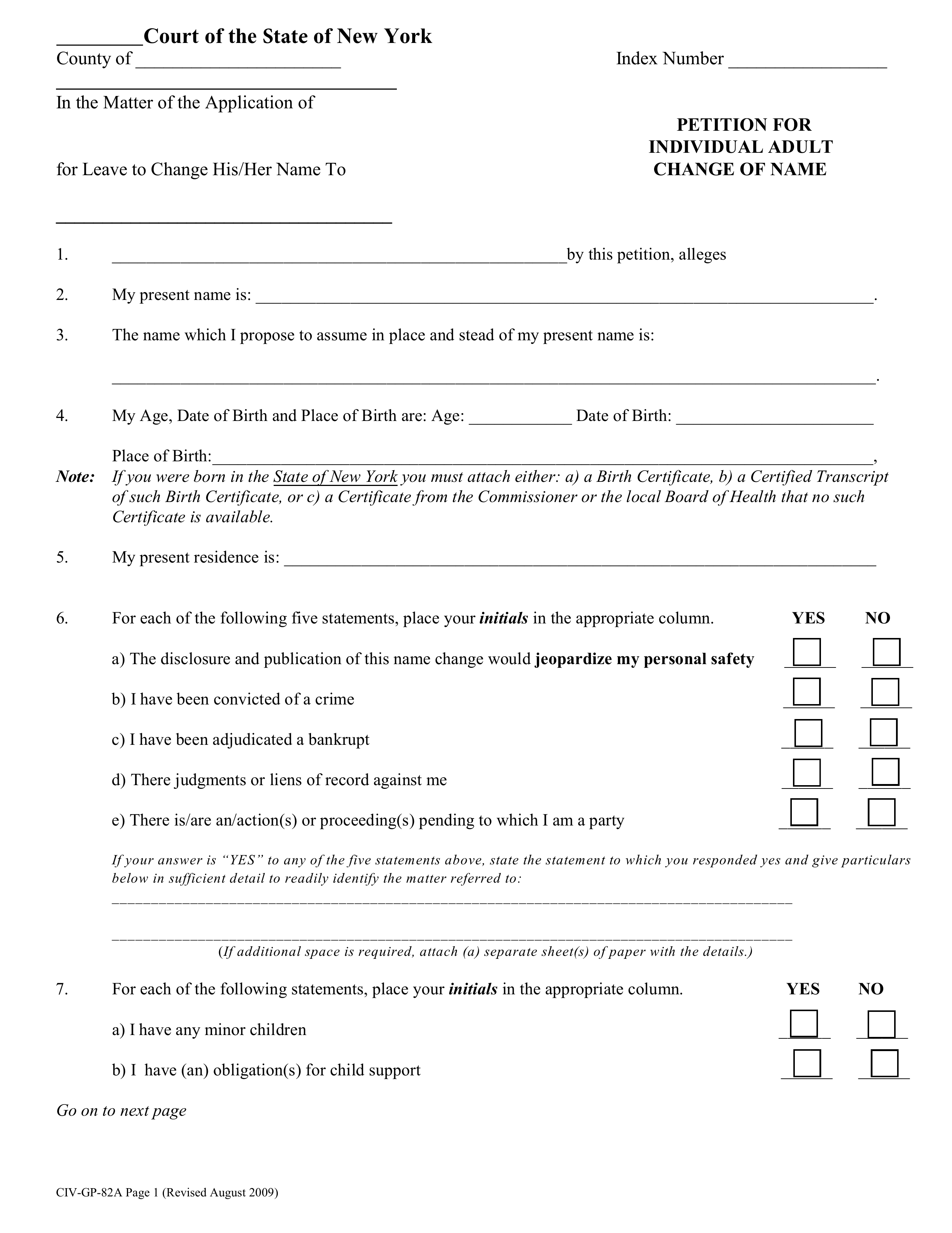What Happens If You Die Without A Will
A person who dies without a will is said to have died intestate, and the state laws of intestate succession will dictate the distribution of the persons assets. In this situation, state law provides a single set of rules to be followed the same way in every case. However, estate planning is not a one-size-fits-all affair, and it is unlikely that the governments plan will be the same as what you would choose for yourself.
As an example, under New York law, if you are married with children and die without a will, then, your spouse will inherit the first $50,000 of your estate, plus half the remainder, and your children will inherit the other half of the remainder. You may wish to make different arrangements in your own estate plan, particularly if you have children from a previous marriage.
When you have a will, you are also able to control certain other matters, such as designating an executor to be responsible for distributing your assets according to your will. Without a will, the New York State Surrogates Court will appoint an administrator to distribute your assets. A will also permits you to designate a guardian for your minor children in the event that both you and their other parent die. In addition, a will may permit you to take advantage of tax planning to avoid estate taxes, and establish trusts for your children and other beneficiaries.
If you die without a will, state law provides a single set of rules to be followed the same way in every case.
The Benefits Of Having A Will
New York has no legal requirement in place for the creation of a last will and testament. However, creating one can provide you with many benefits.
- A valid will allows you to outline your wishes for any personal property.
- Any digital assets, bank accounts, real estate, vehicles, etc., can be included for disbursement to any loved ones, friends, or family members in your will.
- Having a will also allows for you to name an executor who will be legally required to carry out any wishes outlined in the will.
- A last will and testament can also include guardianship instructions for minors in your care.
- You can make charitable donations.
- You can create pet trusts.
- Small estates can qualify for a simplified probate process if the executor requests it.
Writing After The Testators Signature Is Of No Effect And Can Cause Problems
Any matter after the testators signature on the will can be problematic under New York law. EPTL 3-2.1- generally provide that:
Also Check: How To Delete New York Times Account
Reference Information: Physician Assistant
In December 1970, the American Medical Association adopted the following definition for Physician Assistant:
The Physician Assistant is a skilled person qualified by academic and practical training to provide patient services under the supervision and direction of a licensed physician who is responsible for the performance of that physician assistant.
New York began registering physician assistants in 1972. As of April 1, 2021 there were 19,348 licensed PAs in New York State.
What Is A Will An Overview Of Last Will And Testament In New York

A will, or last will and testament, is a legal document that is intended to convey how to distribute ones property after their death. The term property in the context of the legal document refers to real estate property, personal property, and money.
New York laws regarding wills are codified under the New York Consolidated Laws, Estates, Powers and Trusts Law, also known as NY EPT Law.
A will is a major part of estate planning, as it is a legal document detailing ones final wishes for how they want to distribute their property.
Usually, people want their belongings to go to their descendants however, a last will and testament can make directions for gifts to certain loved ones. A will can also give specific instructions for funeral arrangements and care of ones minor children and pets after his or her death.
As your last will and testament is a serious and complex legal document that involves major reflection, it is highly advised to consult a New York estate planning attorney prior to drafting a will.
You May Like: When Is Rolling Loud New York
Rules For Filing Designating And Nominating Petitions
62041 Specification Of Objections To Designating And Independent Nominating Petitions
Recommended Reading: Pay Traffic Tickets Online Nyc
What Are The Requirements For Making A Will In New York
To make a will in New York, you must be:
- an individual 18 years of age or older, and
Your will can dispose of your real and personal property. N.Y. Estates, Powers & Trusts Law § 3-1.1.
Generally, you must make your will on hard copy. That is, it must be on actual paper. It cannot be on an audio, video, or any other digital file. However, New York does allow nuncupative wills in very limited circumstances, such as for a member of the armed forces during a time of armed conflict, a mariner, or a person who accompanies a member of the armed forces during armed conflict. The oral will must be clearly witnessed by two people. It is also subject to become invalid shortly after the emergency situation expires. N.Y. Estates, Powers & Trusts Law3-2.2. New York also recognizes holographic wills for the same purposes as nuncupative wills , but they are usually not a good idea.
Avoid Using A Will To Escape Estate Taxes
A will is still subject to estate taxes. Instead of trying to use a will to avoid the often heavy estate taxes, explore different types of trusts that may work for your situation. Trusts escape a lot of tax subjection, because the property is not passing directly to the beneficiary, rather to the trust account, over which the beneficiary does not have complete control.
Don’t Miss: Watch Kourtney And Kim Take New York
What To Do With A Will After Someone Dies
Once someone passes away, their will is filed with the court. Typically, it is filed in Surrogate’s Court and admitted for probate. Probate is the process in which the document’s appointed executor pays any final debts, taxes, and expenses out of the deceased person’s resources. Next, the executor distributes the remaining property to the beneficiaries as detailed in the paperwork.
In a situation where a person has less than $30,000 in personal property, one can file a “small estate,” also referred to as a voluntary administration, rather than probate. The executor files the original will, along with a certified copy of the death certificate, the small estate affidavit petition, and other supporting documents in the Surrogate’s Court in the county where the deceased person maintained their primary residence.
Can I Write My Own Prenuptial Agreement And It Be Legally Binding If So How
- Posted on Jan 27, 2016
If you are going to write your own prenup, write it on toilet paper. Because that is exactly what it will be. Sure you COULD, but no you SHOULDN’T. It will be nearly impossible to uphold in court a prenup that you wrote yourself. Both of you should have counsel and there should be full and complete financial disclosure between the two of you. If you have enough at stake to worry that you need a prenup, spend some of your hard-earned money on an attorney who can write one that will actually do the job.
Read Also: How Much Are Tolls From Virginia To New York
What Are The Requirements For A Valid Will In New York
In the state of New York, EPTL 3-2.1 governs the formal requirements for the execution and attestation of valid wills. The requirements do not have to be done in the precise order set forth below. However, all the requisite formalities must be observed during a period of time in which, satisfactorily to the surrogate, the ceremony or ceremonies of execution and attestation continue.
The following formalities are required for a valid formal will under New York law.
How To Create A Living Trust In New York

A living trust is one way to make things as easy as possible for your family after youre gone. If you are living in New York and thinking about creating a living trust, this article will provide you with all of the relevant information you need, including a step-by-step guide through the process.
Whether you are setting up a living trust or looking for help with estate planning in general, you might benefit from the advice of a financial advisor. SmartAsset offers a free financial advisor matching service that you can use to find an advisor in your area who can guide you through all of the elements of financial planning.
You May Like: Tickets To Italy From New York
A Person Who Signs Testators Name To The Will Must Also Sign Own Name
If the testator is unable to sign the will, New York law provides that another person, in the testators presence and by his direction, may sign the testators name. However, any person who signs the testators name to the will, shall also sign his own name and affix his residence address to the will.
The person who signs the testators name will not count as one of the required attesting witnesses to the will.
A will that lacks the signature of the person signing the testators name shall not be valid under New York law, provided, however, that the failure of the person signing the testators name to affix his address shall not affect the validity of the will.
Can I Make A Digital Or Electronic Will
In a few states, you can make a legal will digitally that is, you can make the will, sign it, and have it witnessed without ever printing it out. Although such electronic wills are currently available in only a minority of states, many other states are considering making electronic wills legal. It is generally assumed that most states will allow them in the near future.
Recommended Reading: Where Is The Wax Museum In New York
Requirements To Hold Office
NOTE: The information contained here is intended to provide general guidance for those who are preparing to circulate petitions, and is not to be used as a substitute for consulting the Election Law for specific petition requirements.
Persons wishing to run for elective office may be nominated either by a political party or through the filing of an independent nominating petition. Party members may also circulate petitions to create the opportunity to write in the name of an unspecified person for an office in which there is no contest for the party endorsement. The current political parties are the Democratic, Republican, Conservative, and Working Families parties. Any person who is not nominated by one of these parties must file an independent nominating petition. The requirements for all petitions are contained in Article 6 of the Election Law. The provisions for village elections vary slightly, and the reader is directed to Article 15 of the Election Law for specifics.
Exactly What Does It Imply To Be Testamentary Capable
In order to make your last will and change it , you must meet certain requirements with regards to your legal and mental capabilities first.
In most states, to write a will, you have to be of sound mind and at least 18 years old. Sound mind means you do not have any psychiatric disorders that prevent you from realizing fully the aftermaths of your doings.
Also Check: Pay Nyc Traffic Ticket Online
Register And Title A Passenger Or Commercial Car Truck Motorcycle Or Suv
You or your business must register and title any vehicle you own or lease. Registrations do not need to be in the owner’s name, or for only one person. When you purchase a new vehicle through an auto dealership, the auto dealer can register and title the vehicle, and issue plates .
See more information about
Types Of Property You Can’t Include When Making A Will
Some types of property carry rules that govern what happens after you die. These rules are independent of your will, mostly because the nature of these types of properties is to name a beneficiary or avoid probate.
Property in a living trustOne of the ways to avoid probate is to set up a living trust. The property included in a living trust avoids probate whereas property in your will does not. Additionally, willing property to someone in your will when that property is already delegated to someone by a living trust is inconsistent. The property in the living trust automatically goes to the beneficiaries and is managed by the trustee. If you want to change this arrangement, you must do it through the trust forms and documents and not through your will.
In this case, like with the trust, the proceeds automatically go to the beneficiary, often a spouse or minor children.
Retirement plan proceeds, including money from a pension, IRA, or 401The forms for these plans contain a section for you to include your desired beneficiary.
Stocks and bonds held in beneficiaryThis is yet another type of property that automatically goes to your named beneficiary. Talk to the brokerage company if you wish to change the named beneficiary.
Proceeds from a payable-on-death bank accountThe form for this account asks you to name your beneficiary. To change the beneficiary, you just fill out another form with your bank.
You May Like: Seattle Promise Eligibility
Do I Need To Have My Will Notarized
No, in New York, you do not need to notarize your will to make it legal.
However, New York allows you to make your will “self-proving” and you’ll need to go to a notary if you want to do that. A self-proving will speeds up probate because the court can accept the will without contacting the witnesses who signed it.
To make your will self-proving, you and your witnesses will go to the notary and sign an affidavit that states who you are and that each of you knew you were signing the will.
Where Can I Find New York’s Laws About Making Wills

For more on New York estate planning issues, see our section on New York Estate Planning.
Ready to create your will?
Self-help services may not be permitted in all states. The information provided on this site is not legal advice, does not constitute a lawyer referral service, and no attorney-client or confidential relationship is or will be formed by use of the site. The attorney listings on this site are paid attorney advertising. In some states, the information on this website may be considered a lawyer referral service. Please reference the Terms of Use and the Supplemental Terms for specific information related to your state. Your use of this website constitutes acceptance of the Terms of Use, Supplemental Terms, Privacy Policy and Cookie Policy. Do Not Sell My Personal Information
Don’t Miss: Tolls From Dc To Ny